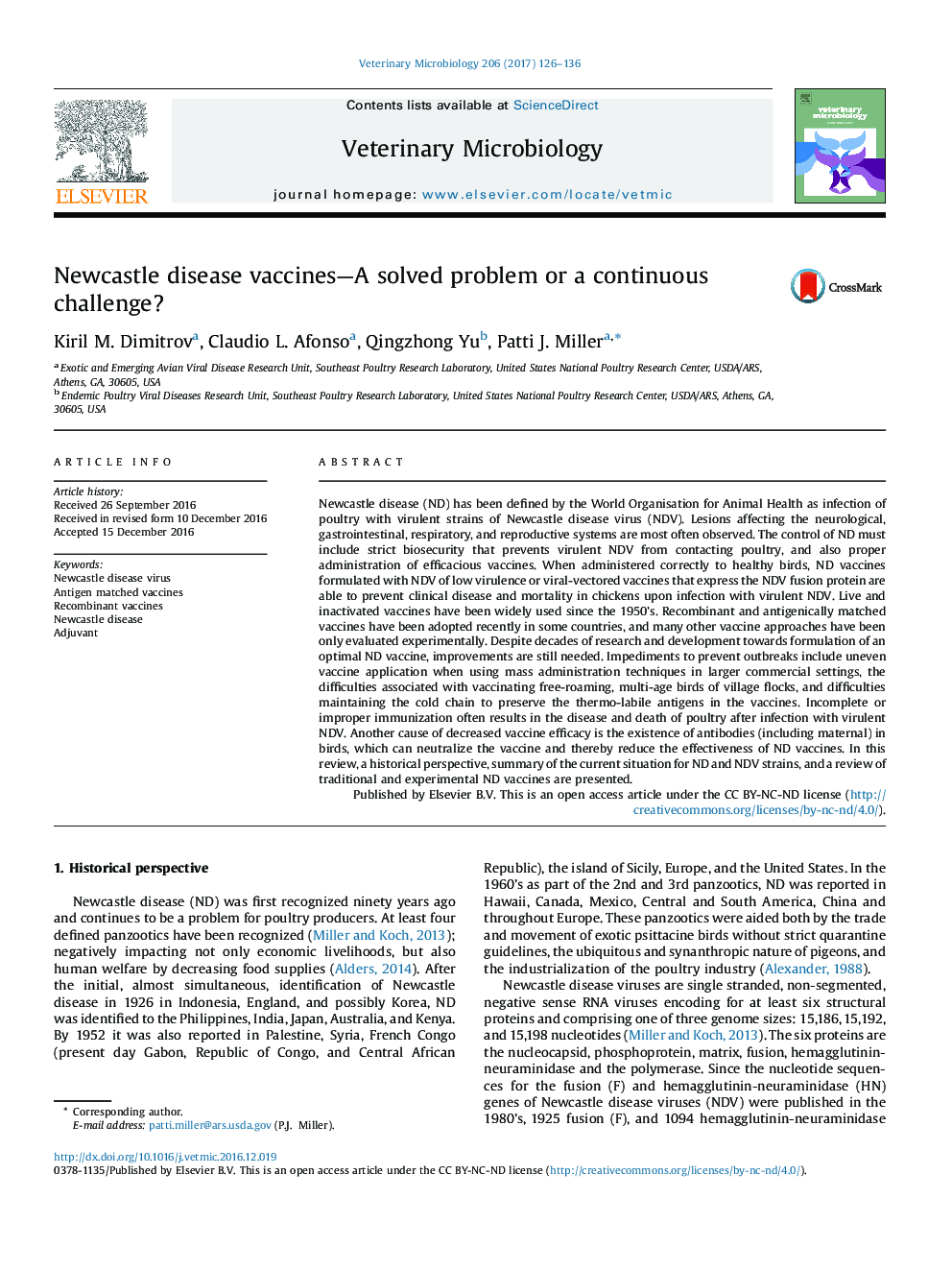| Article ID | Journal | Published Year | Pages | File Type |
|---|---|---|---|---|
| 5545344 | Veterinary Microbiology | 2017 | 11 Pages |
â¢ND vaccines without biosecurity may not control ND, especially in endemic countries.â¢Better understanding of the reasons for “vaccine failure” is needed.â¢A regular review of field vaccination protocols is necessary to ensure adequate application and response to emerging strains.â¢Vaccines that provide antigens matched to circulating strains induce more specific humoral responses.â¢Antigenically matched vaccines are more effective in decreasing viral shedding.
Newcastle disease (ND) has been defined by the World Organisation for Animal Health as infection of poultry with virulent strains of Newcastle disease virus (NDV). Lesions affecting the neurological, gastrointestinal, respiratory, and reproductive systems are most often observed. The control of ND must include strict biosecurity that prevents virulent NDV from contacting poultry, and also proper administration of efficacious vaccines. When administered correctly to healthy birds, ND vaccines formulated with NDV of low virulence or viral-vectored vaccines that express the NDV fusion protein are able to prevent clinical disease and mortality in chickens upon infection with virulent NDV. Live and inactivated vaccines have been widely used since the 1950's. Recombinant and antigenically matched vaccines have been adopted recently in some countries, and many other vaccine approaches have been only evaluated experimentally. Despite decades of research and development towards formulation of an optimal ND vaccine, improvements are still needed. Impediments to prevent outbreaks include uneven vaccine application when using mass administration techniques in larger commercial settings, the difficulties associated with vaccinating free-roaming, multi-age birds of village flocks, and difficulties maintaining the cold chain to preserve the thermo-labile antigens in the vaccines. Incomplete or improper immunization often results in the disease and death of poultry after infection with virulent NDV. Another cause of decreased vaccine efficacy is the existence of antibodies (including maternal) in birds, which can neutralize the vaccine and thereby reduce the effectiveness of ND vaccines. In this review, a historical perspective, summary of the current situation for ND and NDV strains, and a review of traditional and experimental ND vaccines are presented.
